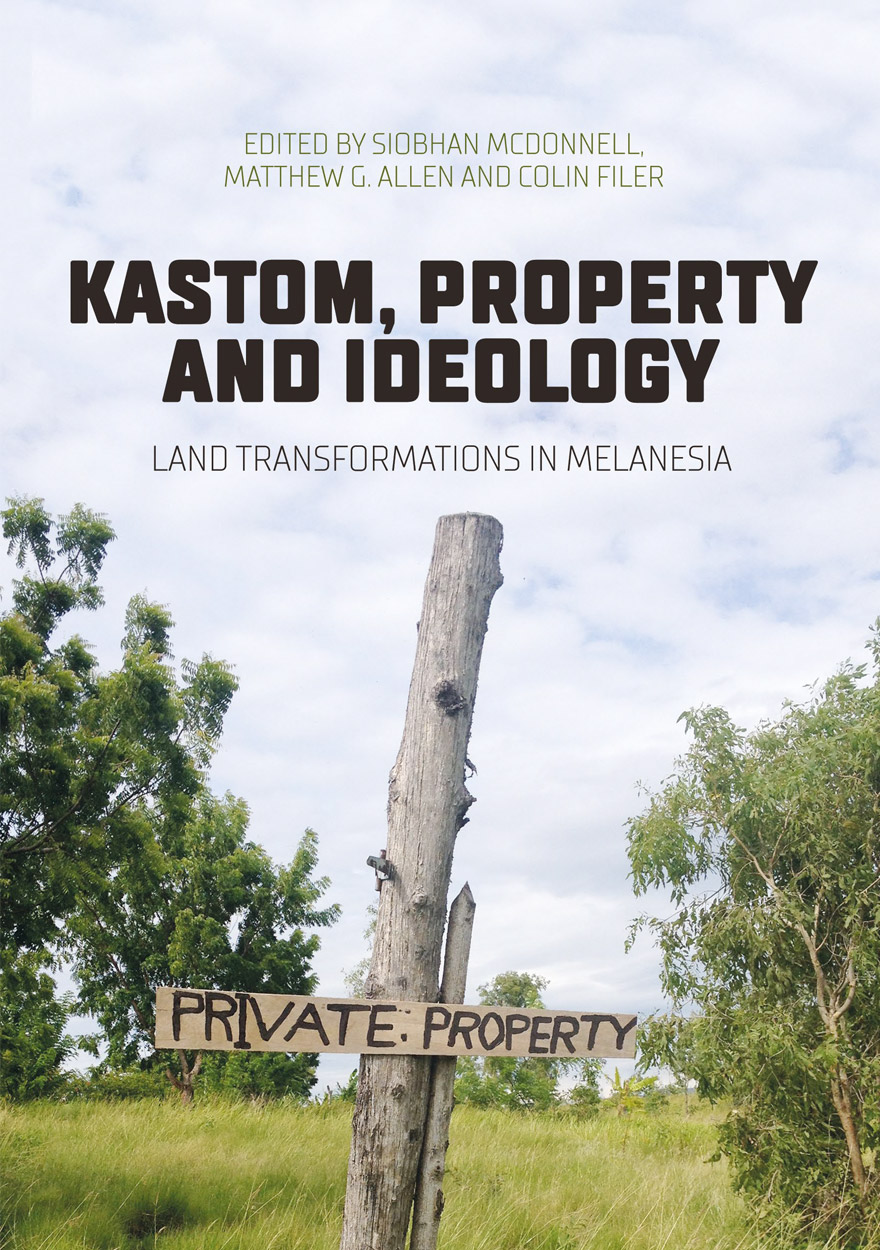Matthew Allen
Matthew G. Allen is a Fellow in the State, Society and Governance in Melanesia Program at The Australian National University.

Kastom, property and ideology »
Land transformations in Melanesia
Publication date: March 2017
The relationship between customary land tenure and ‘modern’ forms of landed property has been a major political issue in the ‘Spearhead’ states of Melanesia since the late colonial period, and is even more pressing today, as the region is subject to its own version of what is described in the international literature as a new ‘land rush’ or ‘land grab’ in developing countries. This volume aims to test the application of one particular theoretical framework to the Melanesian version of this phenomenon, which is the framework put forward by Derek Hall, Philip Hirsch and Tania Murray Li in their 2011 book, Powers of Exclusion: Land Dilemmas in Southeast Asia. Since that framework emerged from studies of the agrarian transition in Southeast Asia, the key question addressed in this volume is whether ‘land transformations’ in Melanesia are proceeding in a similar direction, or whether they take a somewhat different form because of the particular nature of Melanesian political economies or social institutions. The contributors to this volume all deal with this question from the point of view of their own direct engagement with different aspects of the land policy process in particular countries. Aside from discussion of the agrarian transition in Melanesia, particular attention is also paid to the growing problem of land access in urban areas and the gendered nature of landed property relations in this region.

Pillars and Shadows »
Statebuilding as peacebuilding in Solomon Islands
Authored by: John Braithwaite, Sinclair Dinnen, Matthew Allen, Valerie Braithwaite, Hilary Charlesworth
Publication date: November 2010
This volume of the Peacebuilding Compared Project examines the sources of the armed conflict and coup in the Solomon Islands before and after the turn of the millennium. The Regional Assistance Mission to Solomon Islands (RAMSI) has been an intensive peacekeeping operation, concentrating on building ‘core pillars’ of the modern state. It did not take adequate notice of a variety of shadow sources of power in the Solomon Islands, for example logging and business interests, that continue to undermine the state’s democratic foundations. At first RAMSI’s statebuilding was neither very responsive to local voices nor to root causes of the conflict, but it slowly changed tack to a more responsive form of peacebuilding. The craft of peace as learned in the Solomon Islands is about enabling spaces for dialogue that define where the mission should pull back to allow local actors to expand the horizons of their peacebuilding ambition.



